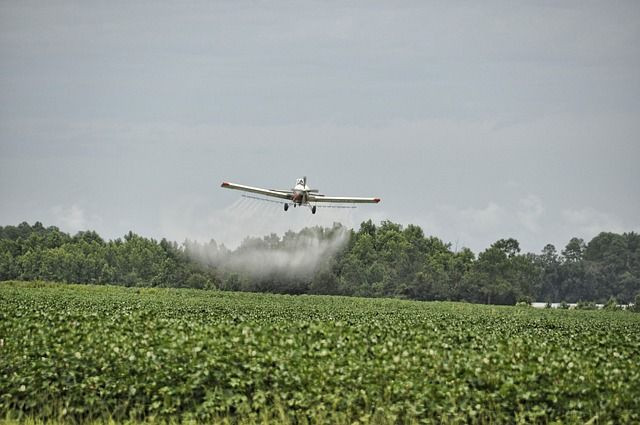Aerial Pesticide Spraying Possibly Linked To Autism, But Some Scientists Wary Of Connection

New research suggests that the airborne pesticides we use to protect ourselves from mosquitoes every summer may also raise the risk of autism spectrum disorders and other developmental delays in children — but researchers say we should be careful about jumping to conclusions too quickly.
The pilot study, presented last weekend at the annual meeting of the Pediatric Academic Societies, examined the 2010 to 2015 medical records of children living with developmental disorders across Central New York. Aerial pesticide spraying, specifically of pyrethroids, had been commonplace in certain regions since 2003, but the surrounding areas were treated for mosquitoes differently. When the researchers cross-referenced the children’s place of residence with the different methods of pesticide exposure, they found a 25 percent higher risk of autism and delays among those children who lived in zip codes where aerial spraying occurred. Of the children living in zip codes with aerial spraying, 0.84 percent developed autism, compared to 0.67 percent of those who lived elsewhere.
“Other studies have already shown that pesticide exposure might increase a child's risk for autism spectrum disorder or developmental delay," said Dr. Steven Hicks, an assistant professor of pediatrics at Penn State College of Medicine, in a statement. "Our findings show that the way pesticides are distributed may change that risk.”
Indeed, data obtained from the long running Childhood Autism Risks from Genetics and the Environment, or CHARGE, study found a similar connection between pesticides and autism risk in 2014. The children of California mothers who lived near areas of pyrethroid exposure just before conception or during their third trimester were anywhere from 70 percent to more than twice as likely to be diagnosed with developmental disorders than those who hadn’t. Elsewhere, researchers have repeatedly found evidence that environmental toxins play a role in autism, even going so far as to warn expectant mothers away from common household items like beauty creams and lotions.
A Complicated Connection
Autism, however, is a complicated condition, caused by a variety of risk factors that interact with one another in ways we still understand little about. That makes proving a clear connection between any one potential toxin and autism risk a difficult task. And some fellow scientists believe that Hicks and his colleagues haven’t come close to accomplishing that,
“The comparison between the area where there had been aerial spraying with the rest was different in a number of ways, including that it was a swamp,” Professor Jean Golding, an Emeritus Professor of Pediatric & Perinatal Epidemiology at the University of Bristol, told the Science Media Center in the United Kingdom. “The authors took no account of differences between the areas that may have been explained by the age of the parents or other circumstances known to increase the risk of autism.”
Others, like Professor Alastair Sutcliffe of the University College London, are wary of quickly declaring any environmental link to autism in light of the still rampant myth that vaccines can cause the condition. “Rates of autism appear to be rising in the Western world so anything that increases incidence can seem alarming,” he told the center. “But anybody can claim one thing is associated with another. This new unpublished, unreviewed study seems likely to be merely observational and therefore not cause and effect.”
For his part, Hicks doesn’t believe his team’s findings are definitive, either, nor does he want a repeat of the anti-vaccination movement. “I want to be careful not to cause a scare that we should be abandoning these pesticide spraying practices,” Hicks told Newsweek. “We know that autism has a genetic component. It’s not something that’s caused solely by environmental risk factors.”
It might even be the case, as the authors note in the study, that the link isn’t with pesticides at all, but rather the various diseases they’re trying to prevent — a possibility especially relevant with the growing consensus that mosquito-borne illnesses like Zika can rarely cause birth defects in developing fetuses and neurological disorders in adults. Only more research, Hicks said, will be able to find out for sure.
Source: Hicks, S, Doraiswamy V, Fry K, et al. Aerial Pesticide Exposure Increases the Risk of Developmental Delay and Autism Spectrum Disorder. Pediatric Academic Societies Meeting 2016. 2016.



























